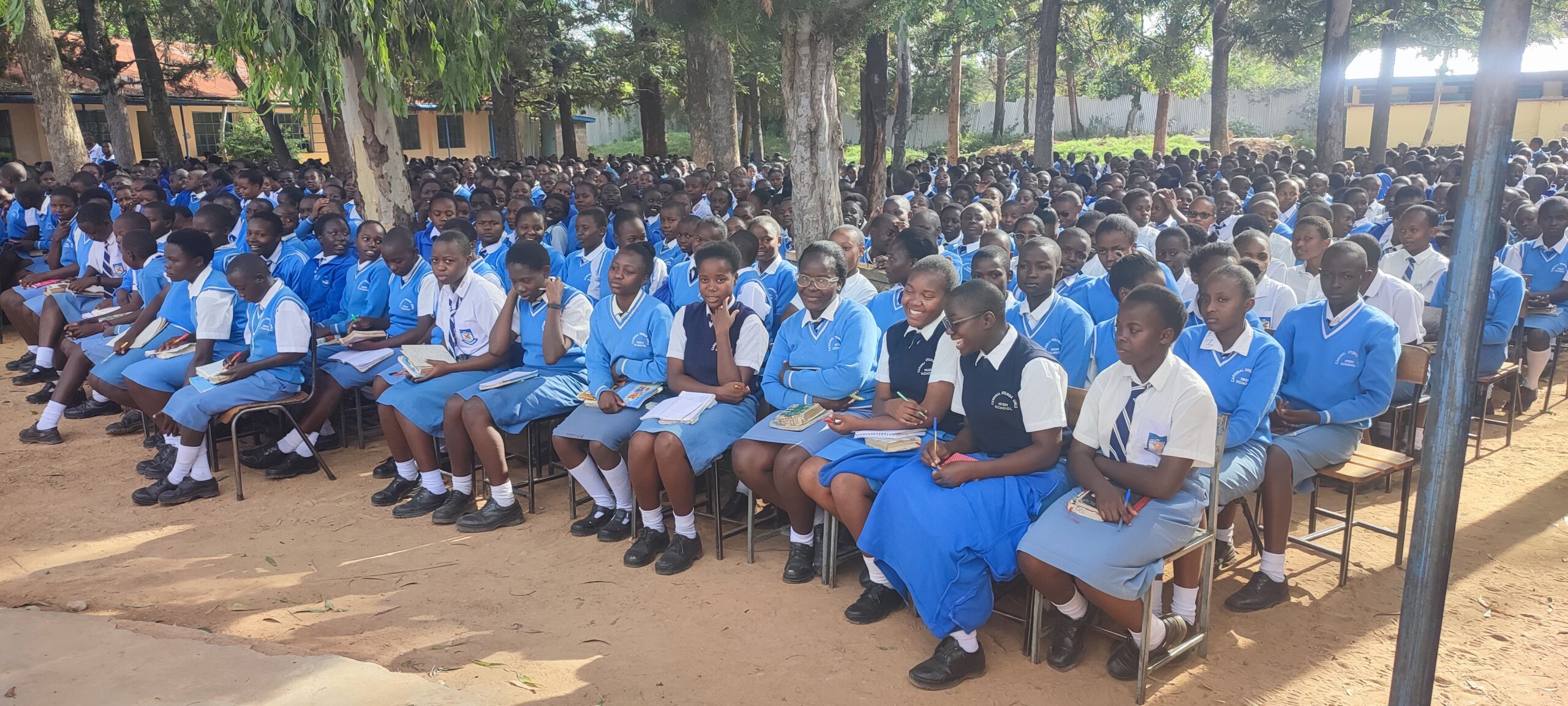A picture of attentive students absorbing valuable messages from their peer
There was a time, not long ago though now shadowed by the mists of memory, when to sit in a classroom in Kenya was to be inducted into a quiet but profound kind of patriotism. Ours was an education system, 8:4:4, they called it, that saw the classroom not merely as a factory for examination candidates, but as a sanctuary for the soul of the nation.
Patriotism in those days was not taught with flags and slogans. It lived in the discipline instilled by teachers whose voices echoed not only in lessons but in our conscience. It was etched into the chalkboard lines of moral instruction. Even before the first bell, discipline came before the textbook. Respect was not requested. It was expected. And upheld.
The literature we read, both in English and Kiswahili, was not barren of meaning. Far from it. These were the golden days of Kifo Kisimani, Shreds of Tenderness, Betrayal in the City, Mayai Waziri wa Maradhi. These were not idle tales. They were mirrors held up to the state, scalpel-like examinations of the human condition, and veiled criticisms of leadership and governance.
In Kifo Kisimani by Kithaka wa Mberia, we are led into a chilling exploration of political repression and individual helplessness in the face of state violence. The poetic structure of the play is as haunting as its message, that truth, when suppressed, bleeds out eventually, often through death.
Shreds of Tenderness by John Ruganda is a post-conflict piece that interrogates the scars left behind by civil war and political upheaval. The play revolves around the psychological trauma of siblings caught between exile, betrayal, and national healing. It is not a play of cheap politics. It is a study in memory, justice, and reconciliation.
Betrayal in the City by Francis Imbuga remains one of the most enduring of Kenya’s political satires. Set in the fictional African country of Kafira, it examines tyranny, censorship, and the complicity of intellectuals in oppression. Yet it does so with masterful subtlety, through layered symbolism and humour. The message is clear. The struggle for justice often begins from within.
Mayai Waziri wa Maradhi by Said A. Mohamed is a Kiswahili gem that tackles corruption and public health mismanagement through satire. Its humour dances alongside its condemnation. The minister in question is comically obsessed with eggs, while hospitals lie in ruin, a quiet, absurd indictment of misplaced priorities.
These works laid bare the rot in our politics and society, but through metaphor, symbolism, the delicate embroidery of literary art. Fictional nations carried very real warnings. No leader was named, but every regime found its reflection in those pages.
This was not literature meant to ignite mockery. It was designed to kindle thought. It required of the learner a cultivated ear and a discerning mind.
Today I fear the classroom has grown loud and shallow.
A video, now circulating freely on social media, shows a teacher guiding learners through a segment of a Swahili text. The scene begins innocently, children reading in chorus. But then the words take an uncanny turn, mimicking, word for word, the president’s public pronouncements. “Ndio barabara itoke Mandera, ikuje Ramu, ikuje Garre…” The children chant, voices rising in rhythm and ridicule.
This is not clever parody. It is pedagogical perversion.
Children are still clay, soft, impressionable, unformed. They are to be nurtured, not weaponised. To guide them into mimicry of national leaders, regardless of political leaning or personal opinion, is not satire. It is sabotage. What values are we engraving on their hearts? That authority is to be mocked? That disrespect is intellectual?
Imagine the father, returning home from a long day, having stumbled at one point or another, as all humans do, only to find that his children have been trained to mimic his lowest moments. Not with empathy, but with laughter. What then becomes of the home?
Once, our parents told us to respect our elders, not because they are always right, but because we must always do right.
We have forgotten the sacred duty of educators, to build minds, not break spirits. To open doors to questioning, but never to contempt. The African griots, the wise custodians of community memory, did not shout insults from the market square. They told stories. Their wisdom was woven into parable and proverb. They left you thinking, not jeering.
Let the school remain a sanctuary
Let the child be allowed to learn with joy and reverence. Let us not hand them the tools of satire before they have even mastered the craft of self-respect. Let us return literature to its rightful place, not as a tool for partisan performance, but as a lamp for the path ahead.
We are not just teaching students. We are crafting citizens.
And a nation is only as dignified as its classrooms.
Have a beautiful Sunday. Won’t you?


Facebook Comments